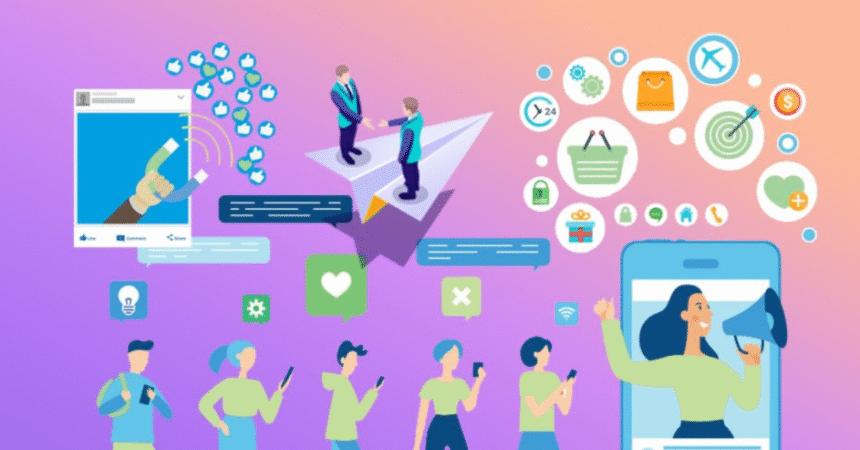The New Age of Influence
In the era of smartphones and social media, fame has taken on an entirely new meaning. The traditional path to celebrity—through movies, music, or TV—has been radically disrupted by the rise of influencers. Platforms like Instagram, TikTok, and YouTube have given everyday people the power to build massive audiences, set trends, and become brand ambassadors without stepping foot on a red carpet. But with this shift comes a new breed of controversy, one that’s increasingly being referred to as “InfluncersGoneWild.”
This phrase has quickly become synonymous with the unpredictable, often chaotic nature of online fame. It captures the moments when influencers go off-script, sparking social media scandals, generating viral content, and challenging the norms of public relations and brand reputation.
Digital Celebrity in the Spotlight
At the heart of this phenomenon is digital celebrity culture—an environment where likes, comments, and shares are often valued more than credibility or responsibility. Influencer culture thrives on constant engagement. The more outrageous or controversial the post, the more attention it garners. But this “attention economy” is a double-edged sword.
As influencers chase relevance, some have resorted to shocking behavior or controversial takes that spark major backlash. The result? A boom in social media drama and reputational fallout. These incidents don’t just affect individual influencers—they ripple through social media marketing strategies, brand deals, and even public perception of the platforms themselves.
Content Creation and Controversy
In a space driven by algorithmic visibility, content creators face pressure to remain visible and relevant. This often leads to the creation of risky, boundary-pushing content. And while these efforts sometimes lead to success, they can just as easily spiral into scandal.
The phenomenon of InfluncersGoneWild showcases what happens when content goes viral for the wrong reasons. Whether it’s an ill-advised prank, offensive comments, or insensitive promotions, the backlash can be swift and brutal. Online identity becomes a fragile asset, and brands are quick to distance themselves from creators who compromise their image.
The real challenge for creators is maintaining authenticity without courting controversy. This tightrope walk is complicated by the speed of social media trends and the fleeting nature of internet fame.
The Business of Being an Influencer
Despite the chaos, influencer marketing remains one of the most powerful tools in digital marketing. Businesses increasingly rely on Instagram influencers, TikTok trends, and niche brand ambassadors to reach target audiences. These collaborations can be incredibly lucrative for both parties—until a scandal hits.
The influence of a creator can elevate a brand, but it can also destroy one if things go wrong. Companies are now more cautious, often vetting influencers thoroughly before signing partnerships. Still, the line between bold marketing and damaging controversy is thin, and once crossed, it can lead to massive fallout on both sides.
Navigating Social Media Trends Responsibly
There’s no denying the power of social media influence. Influencers drive trends, shape public opinion, and connect with audiences on a deeply personal level. However, the rise of InfluncersGoneWild has made it clear that unchecked influence can come at a cost.
Responsible content creation is no longer optional—it’s essential. Creators must understand that their reach comes with real-world impact. Meanwhile, audiences are becoming more discerning, often holding influencers accountable when their actions feel inauthentic or harmful.
Internet fame is fickle. What’s trending today could be canceled tomorrow. The shift toward more ethical, intentional content is not just a trend—it’s a necessity for the sustainability of the influencer industry.
The Future of Online Influence
So where do we go from here? The phenomenon of InfluncersGoneWild serves as both a warning and a reflection of the digital age. It underscores the need for transparency, accountability, and strategy in the world of content creation.
As platforms evolve and audiences mature, the influencer landscape will likely become more regulated. Brands will demand greater professionalism, and followers will expect higher standards. This doesn’t mean the end of edgy content—but it does signal a future where social media marketing and online identity are more carefully managed.
Ultimately, the influencers who thrive will be those who understand the balance between entertainment and ethics, engagement and responsibility. Digital fame isn’t just about going viral—it’s about staying relevant for the right reasons.











